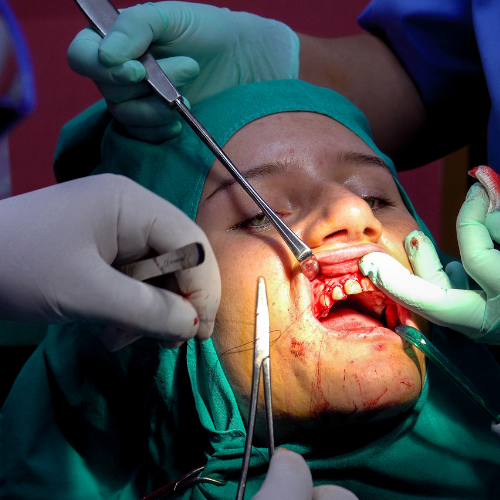What is oral surgery?
The Facial Aesthetics Treatment in Gurugram by Smile Max for dentists organization’s mission is teaching the best surgical and non surgical facial rejuvenation techniques to dentists worldwide
Oral surgery is known to any operational process performed in or around the mouth and jaw, generally by a dental specialist who’s specialized to do a specific variety of oral surgeries. There are several varieties of oral surgery, which includes surgical procedures such as:- a tooth removal and a root canal. Some oral surgeries consist of the resutationing of the jaw.
In other instances, oral surgery may include the take out of a tumor. Oral surgeries might be done by any one of a type of different varieties of dental specialists, which includes:- endodontists/ periodontists/ prosthodontists.
- Wisdom tooth extraction is a surgical process used for removing one and more than one wisdom teeth — the four permanent adult teeth situated at the back corners of an individual’s mouth on the upper and bottom.

Facial Aesthetics Treatment techniques performed by us in Gurugram
- If a wisdom tooth doesn’t include room for growth (impacted wisdom tooth), which results in pain/ infection and other dental issues, you will likely require to have it pulled. Wisdom tooth extraction may be performed by a dentist and an oral surgeon.
- To avoid potential future problems, many dentists and oral surgeons considered wisdom tooth extraction even if impacted teeth aren’t recently occurring problems.
Why it's done?
Impacted wisdom teeth Opening.
Wisdom teeth and third molars, are from the lastest permanent teeth to erupt (look) in the mouth. These teeth generally appear between the ages of 17- 25. Some people never built wisdom teeth. For many people, wisdom teeth appear naturally — exactly as their other molars did — and occur with no pain or issues.
Many people built impacted wisdom teeth — teeth that don’t have sufficient room for appearing into the mouth or built naturally. Impacted wisdom teeth may appear only partially and not at all.
An impacted wisdom tooth may:
- Grow at an angle toward the next tooth (second molar)
- Grow at an angle toward the back of the mouth
- Grow at a right angle to the other teeth, as if the wisdom tooth is “lying down” within the jawbone
- Grow straight up or down like other teeth but stay trapped within the jawbone
Problems with impacted wisdom teeth
You will interest fully require your impacted wisdom tooth pulled if it causes in problems like these:
- Pain
- Trapping food as well as debris present after the wisdom tooth.
- Infection and gum disease or periodontal disease.
- Tooth decay in a partially appeared wisdom tooth.
- Infection to a closed tooth and surrounding bone.
- Built-in of a fluid-filled sac and cyst around the wisdom tooth.
- Complications with orthodontic procedures for straightening other teeth.

Risks
Most wisdom tooth extractions don’t work for long-term complications. However, exchange and take out of impacted wisdom teeth typically needs a surgical approach which includes building an incision in the gum tissue and removing bone. Hardly, complications can involve:
- Painful dry socket and exposure of bone during the post-surgical blood clot is hidden from the site of the operational wound or socket.
- Damage in the socket from bacteria and trapped food particles.
- Infection to closed teeth/ nerves/ jawbone/ sinuses.
How you prepare
Your dentist may do the treatment in the office. However, if one’s tooth is hugely impacted and if the extraction needs an in-depth operational approach, your dentist may recommend you to go to an oral surgeon. In addition to building the area numb with local anesthetic, the surgeon may recommend sedation for allowing you to be highly comfortable at the time of the procedure.




